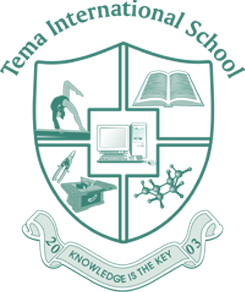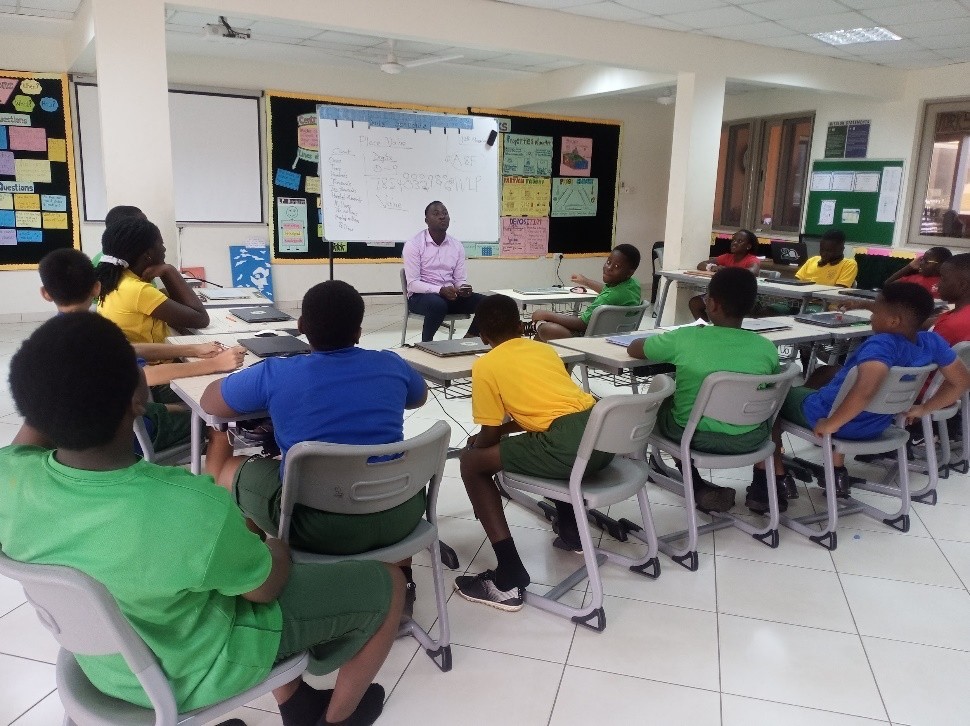At TIS Primary School, inclusion is not just a value we uphold but a foundation on which our educational community thrives. Inclusiveness lies at the heart of our commitment to nurturing well-rounded, globally-minded students. In our diverse and dynamic environment, we celebrate differences and foster a culture of respect, understanding, and collaboration.
At our school, inclusion extends beyond mere acceptance; it is about embracing the uniqueness of each student and recognising the richness that diversity brings to our learning community. We believe every child has the right to feel valued and supported, and we are dedicated to creating an environment catering to various learning styles, abilities, and backgrounds.
Our International Baccalaureate (IB) curriculum catalyses inclusiveness, encouraging students to explore multiple perspectives and develop an open-minded worldview. Through inquiry-based learning and interactive approaches, we empower our students to appreciate diversity, cultivate empathy, and become compassionate global citizens.
Our commitment to inclusiveness is not only reflected in our curriculum but is woven into the fabric of our school’s policies, practices, and interactions. We prioritise creating accessible spaces, providing differentiated instruction, and fostering a sense of belonging for every child. Our educators are dedicated to understanding and addressing the unique needs of each student, ensuring that everyone can actively engage in the learning process.
In this vibrant and inclusive learning environment, we aim to cultivate a sense of unity that transcends cultural, linguistic, and socio-economic boundaries. As a collaborative community, we strive to instil in our students the values of equity, fairness, and a genuine appreciation for the richness diversity brings to our collective educational journey.
Inclusive education refers to an educational philosophy and practice that seeks to accommodate all students’ diverse needs, abilities, and learning styles, regardless of their background, abilities, or differences. The IB program and practices used at Tema International Primary School seek to remove all learning barriers for every school community member.
The Learner Profile
 The school effectively uses the learner profile by encouraging and awarding learners who exhibit and use the attributes well. The main intention of the learner profile is to serve as a powerful tool to encourage inclusiveness by promoting a set of attributes and values that cultivate a diverse and respectful learning environment. It emphasises qualities such as open-mindedness, empathy, and respect, and the Learner Profile inspires learners to appreciate and celebrate differences. It encourages them to understand various perspectives and embrace cultural diversity.
The school effectively uses the learner profile by encouraging and awarding learners who exhibit and use the attributes well. The main intention of the learner profile is to serve as a powerful tool to encourage inclusiveness by promoting a set of attributes and values that cultivate a diverse and respectful learning environment. It emphasises qualities such as open-mindedness, empathy, and respect, and the Learner Profile inspires learners to appreciate and celebrate differences. It encourages them to understand various perspectives and embrace cultural diversity.
The School Identifies and Provides Appropriate Learning Support
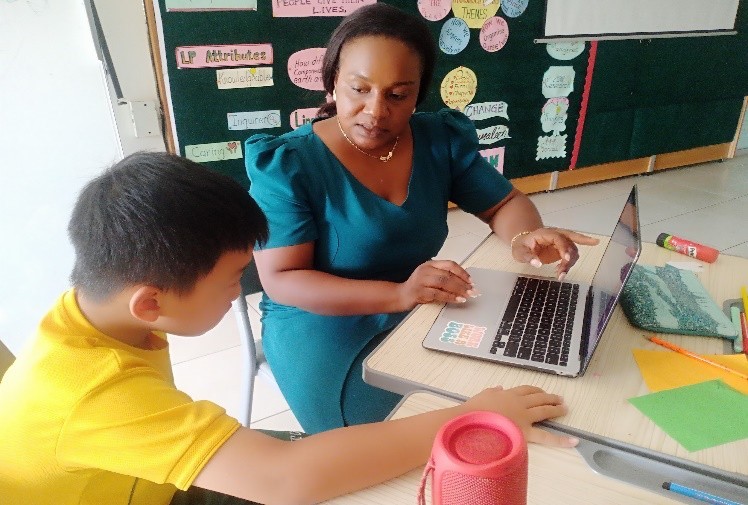 In our school, we identify students facing learning challenges. We keep a close eye on them in the classroom, pinpointing their specific challenges and providing the necessary support to help improve their learning experience. Teachers have been given a planner to help them plan effectively using different teaching approaches. Teachers determine the best strategies to ensure that every child can grasp and understand lessons as they learn. This is successfully done through effective and well-planned collaboration. Teachers discuss and share ideas to make sure they plan well for each lesson, aiming to tackle the Inclusive policy “Education for All” at the Primary School.
In our school, we identify students facing learning challenges. We keep a close eye on them in the classroom, pinpointing their specific challenges and providing the necessary support to help improve their learning experience. Teachers have been given a planner to help them plan effectively using different teaching approaches. Teachers determine the best strategies to ensure that every child can grasp and understand lessons as they learn. This is successfully done through effective and well-planned collaboration. Teachers discuss and share ideas to make sure they plan well for each lesson, aiming to tackle the Inclusive policy “Education for All” at the Primary School.
The School also Includes the Wider Community in their Learning Through Unit Celebrations.
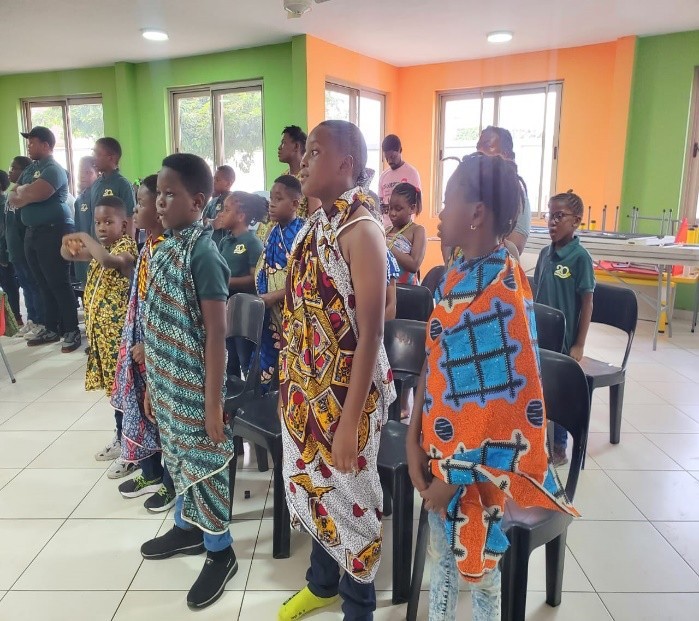 At the end of every unit, the Primary School encourages learners to exhibit their abilities and learning journey to the broader learning community. This action of the school seeks to address inclusiveness by providing a platform where students’ diverse achievements and contributions are recognised and celebrated. These celebrations create an inclusive atmosphere by honouring all learners’ unique strengths, talents, and cultural backgrounds. By acknowledging and valuing the varied accomplishments of students, unit celebrations promote a sense of belonging and unity within the school community. This reinforces the idea that every learner’s journey and achievements are important components of the collective success of the entire learning community.
At the end of every unit, the Primary School encourages learners to exhibit their abilities and learning journey to the broader learning community. This action of the school seeks to address inclusiveness by providing a platform where students’ diverse achievements and contributions are recognised and celebrated. These celebrations create an inclusive atmosphere by honouring all learners’ unique strengths, talents, and cultural backgrounds. By acknowledging and valuing the varied accomplishments of students, unit celebrations promote a sense of belonging and unity within the school community. This reinforces the idea that every learner’s journey and achievements are important components of the collective success of the entire learning community.
Language Policy
Inclusive Education seeks to support multilingualism as a fact, a right and a resource. The Primary school also considers the language policy provided in the PYP programme. Learners in the school are allowed to learn other languages like Sign Language, French, Mandarin and their mother tongue (Twi, Ga and Ewe). The school aims to foster inclusiveness by embracing linguistic diversity among learners. Assemblies are organised for learners to display their various cultures using those languages for others to recognise and appreciate the different language backgrounds and their proficiencies. Learners feel valued for their linguistic heritage, which creates a sense of pride. The language barrier is always broken in the inclusive environment of the Primary School.
https://drive.google.com/file/d/1NfdTTvuOb0kGzyKnl8WmH2bowOVua_iG/view?usp=drivesdk
To enhance students’ learning experience diversity, they can study in their local languages, such as Ga, Ewe, and Sign Language. They also acquire proficiency in languages like French, Sign Language, and Mandarin.
Taking Ownership of Learning Through Assessment
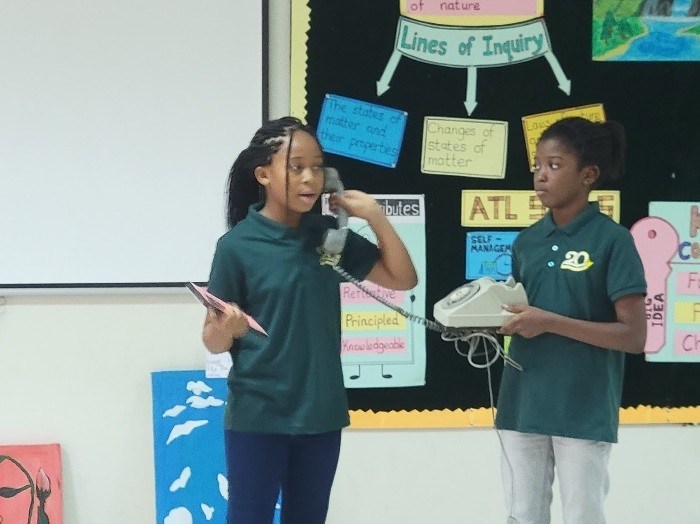 Assessment is a crucial part of learning, without assessment, there is no learning here at the Primary School. From the moment learners set foot on the school grounds, the assessment process begins. Formative assessment is used to provide timely information to learners about their learning and help them to self-reflect. They get to know their strengths and weaknesses to work hard to improve them. It also informs teachers and creates an important opportunity to remove all learning barriers. This practice of the Primary school seeks to address the Access and Inclusion Policy of an IB School with the aim of reducing barriers that students face in learning.
Assessment is a crucial part of learning, without assessment, there is no learning here at the Primary School. From the moment learners set foot on the school grounds, the assessment process begins. Formative assessment is used to provide timely information to learners about their learning and help them to self-reflect. They get to know their strengths and weaknesses to work hard to improve them. It also informs teachers and creates an important opportunity to remove all learning barriers. This practice of the Primary school seeks to address the Access and Inclusion Policy of an IB School with the aim of reducing barriers that students face in learning.
Welcome to the Primary School where every child is not only welcomed but embraced for the unique contributions they bring to our shared exploration of knowledge and understanding.
